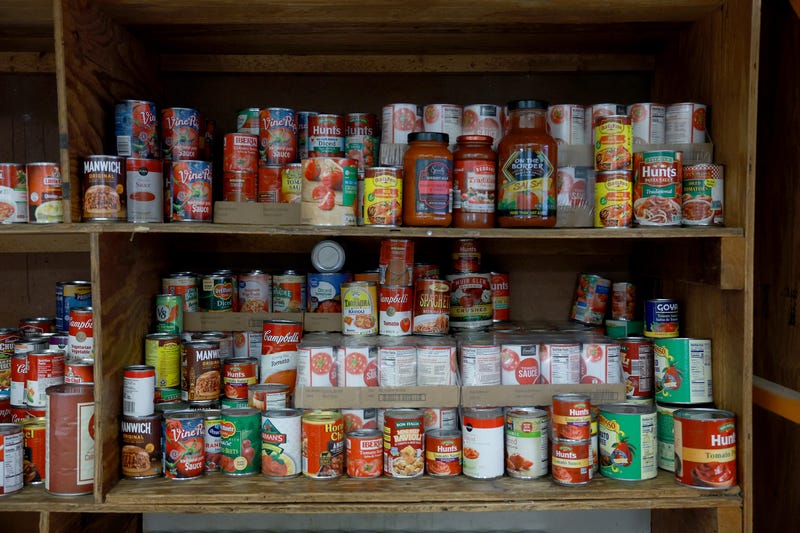
Hunger is on the rise in Connecticut and food pantries are having a difficult time keeping up with the need, according to officials who held a news conference Wednesday at the state Legislative Office Building.
“The old number in Connecticut: about 1 in every 10 Connecticut residents dealt with hunger and food insecurity,” says Jason Jakubowski, President and CEO of Connecticut Foodshare. “The new number? It’s 1 in every 8.
And most of these are individuals who are employed with one, maybe more, working jobs.”
The statistics come from Feeding America’s annual Map the Meal Gap study, which says the number of food insecure individuals in Connecticut has grown 23% in the last year. 1 in 6 children in the state are food insecure, which is defined by the U.S. Department of Agriculture (USDA) as having limited or uncertain access to adequate food.
“Basically (the study) confirms exactly what we have seen on the ground and what our pantries have been seeing for the last several months,” says Jakubowski.
Those pantries, a vital resource, are under great pressure, according to Larry Chiucarello, director of the Plymouth Community Food Pantry:
“I have 17 appliances in my pantry so that we can have 6 weeks of food stored up. I don’t have 6 weeks of food stored up anymore. I cannot get meat. I don’t have meat to give out, for weeks and weeks and weeks.”
Chiucarello says he acquires food from the federal government and from Connecticut Foodshare, but there’s a void that the state’s Nutrition Assistance Program (NAP) used to fill. State lawmakers from both parties say that program is falling short because their bill to keep NAP fully funded by delivering $10 million failed to get a vote during the just-completed legislative session.
“Unfortunately, that money wasn’t allocated this year, as you know we had an interesting budget situation,” says state Rep. Eleni Kavros DeGraw (D-Avon), “but we certainly hope to go back at this next year.”
“By fully funding the established CT NAP program,” says state Sen. Henri Martin (R-Bristol), “we not only would have only provided much needed food to the pantries across the state, but also would have supported our local vendors and our farmers. A missed opportunity.”
The need is great. Chiucarello says he’s seeing new faces at the pantry, with many of them surprised to be there, explaining, “They never expected in their life to be in that food pantry, ever. Because they were the people who used to volunteer. They were the people writing checks.”
